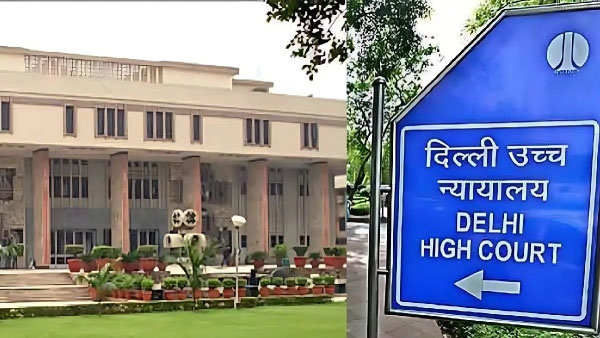Daijiworld Media Network - New Delhi
New Delhi, Nov 3: In a landmark judgment aimed at safeguarding students’ mental health and educational rights, the Delhi High Court on Monday ruled that no law student in India can be barred from taking semester examinations or denied promotion to the next semester solely due to shortage of attendance.
A division bench comprising Justices Prathiba M. Singh and Amit Sharma delivered the verdict in a suo motu case initiated after the tragic suicide of a young law student. The court held that enforcing attendance norms through punitive measures such as detention or denial of examination access cannot come at the cost of a student’s right to life and mental well-being.
Recognising the “debilitating impact” of rigid attendance requirements, the bench issued interim nationwide directions while the Bar Council of India (BCI) continues consultations to overhaul attendance policies in law institutions across the country.

“No student enrolled in any recognised law college, university, or institution in India shall be detained from taking examinations or prevented from pursuing further academic or career progression on the ground of lack of minimum attendance,” the court declared.
While institutions may continue tracking attendance, the High Court clarified that students’ academic progression cannot be halted merely for falling short of the prescribed percentage. Instead, colleges are encouraged to adopt remedial and flexible measures, such as:
• Conducting additional lectures or tutorials;
• Allowing home or project-based assignments;
• Offering practical training opportunities or legal aid work to compensate for attendance gaps.
If, despite these measures, a student still fails to meet the attendance threshold, the court stated that the only permissible academic consequence would be a minor deduction — up to 5 per cent in marks or 0.33 in CGPA — but not disqualification from exams or promotion.
The bench also ruled that promotion to the next semester cannot be withheld due to attendance shortages, calling such restrictions inconsistent with the National Education Policy (NEP) 2020, which prioritises flexibility, holistic learning, and student well-being over rigid attendance rules.
“The absolute bar against appearing in examinations without mandatory physical attendance under Rule 12 of the Legal Education Rules, 2008, runs contrary to the spirit of the NEP 2020 and the UGC Regulations, 2003,” the court observed.
The Bar Council of India has been directed to reassess and revise attendance norms for both three-year and five-year LL.B. courses in consultation with students, parents, faculty, and administrators. The court further urged that co-curricular legal activities — such as moot courts, debates, and legal aid initiatives — be counted toward attendance requirements.
Until the BCI finalises and implements the reformed framework, the High Court’s directions will remain in effect nationwide, ensuring that no law student in India faces academic setbacks solely due to a shortage of attendance.